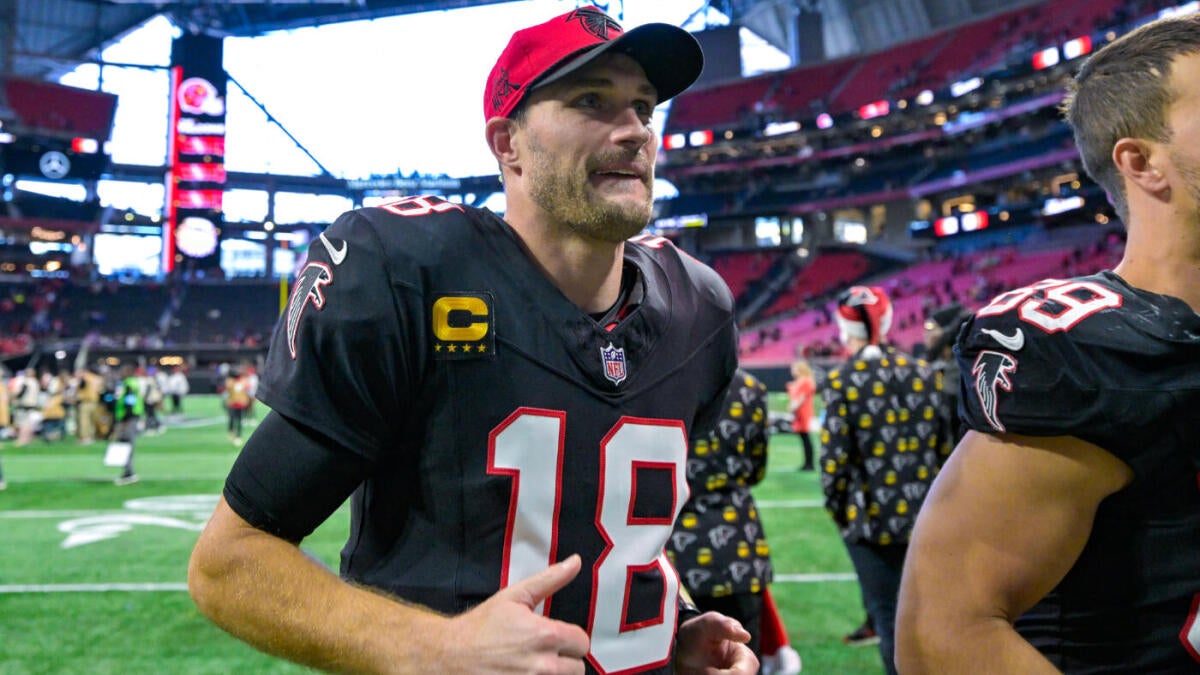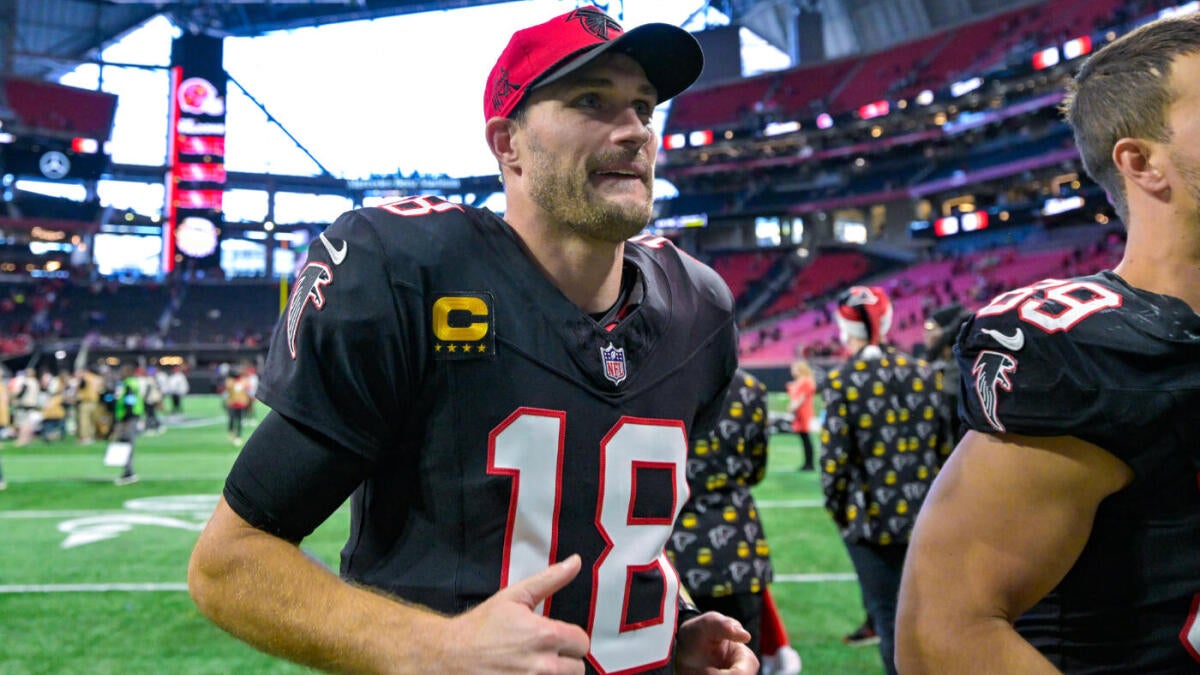The Atlanta Falcons’ quarterback situation in 2024 has become one of the most intriguing and controversial storylines in the NFL. The team’s decision to sign veteran quarterback Kirk Cousins and then draft rookie Michael Penix Jr. with the No. 8 overall pick has created a complex dynamic that raises questions about the franchise’s short-term and long-term strategies. This analysis explores the implications of these moves, the perspectives of the players involved, and the potential impact on the Falcons’ future.
The Promise and the Shock: Cousins’ Arrival and the Penix Pick
The Falcons’ offseason began with a clear vision: to upgrade their quarterback position and compete for a playoff spot. Kirk Cousins, coming off a season-ending Achilles injury with the Minnesota Vikings, was seen as the perfect fit. The Falcons offered him a four-year, $180 million contract, signaling their commitment to immediate success. Cousins, known for his leadership and experience, was expected to bring stability to an offense that had struggled in recent years.
However, the Falcons’ plans took an unexpected turn when they selected Michael Penix Jr. with the eighth overall pick in the NFL Draft. This move was met with widespread criticism, as it seemed to undermine the investment made in Cousins. The decision raised questions about the team’s long-term strategy and the future role of both quarterbacks.
“A Little Bit Misled”: Cousins’ Perspective
The Netflix series “Quarterback” provided a rare glimpse into Cousins’ reaction to the Penix pick. In the episode, Cousins admitted feeling “a little bit misled” by the Falcons’ front office. While he acknowledged the possibility of the team drafting a quarterback at some point, he did not anticipate them using such a high draft pick on the position, especially after securing his services for a significant sum.
Cousins’ sentiment is understandable. Players in his position typically expect a certain level of trust and transparency from their team, especially when they are brought in as marquee free agents. The Falcons’ decision to draft Penix so early effectively undermined that trust, creating an awkward dynamic and casting doubt on Cousins’ long-term role in Atlanta.
His comments highlight the inherent tension in the situation. On one hand, the NFL is a business, and teams must always consider their future. On the other hand, players are human beings with their own aspirations and expectations. The Falcons’ handling of the quarterback situation risked alienating Cousins and disrupting team chemistry.
The Falcons’ Rationale: Planning for the Future
Despite the criticism, the Falcons defended their decision to draft Penix, emphasizing the importance of planning for the future. General Manager Terry Fontenot and Head Coach Raheem Morris argued that quarterback is the most important position in football and that securing a potential successor to Cousins was a prudent move.
Their argument rests on several assumptions. First, they believe that Penix possesses the talent and potential to become a franchise quarterback. Second, they anticipate that Cousins’ performance will eventually decline, either due to age or injury. Third, they believe that having a young, talented quarterback waiting in the wings is a valuable asset, regardless of the financial implications.
While these arguments have some merit, they fail to fully address the immediate impact of the Penix pick on Cousins and the team’s short-term goals. By investing heavily in two quarterbacks, the Falcons have potentially limited their ability to address other pressing needs on the roster. Furthermore, the quarterback controversy has the potential to create a divisive atmosphere in the locker room, hindering the team’s overall performance.
The Impact on Michael Penix Jr.: A High-Pressure Situation
The drafting of Michael Penix Jr. thrust him into a unique and challenging situation. As a highly touted prospect, he carries the weight of expectations, but he also faces the reality of sitting behind a veteran quarterback for the foreseeable future.
Penix’s development will be crucial to the Falcons’ long-term success. He needs to use his time as a backup to learn the offense, refine his skills, and prepare himself for the eventual opportunity to lead the team. However, the pressure to perform will be immense, and any mistakes or setbacks will be magnified by the circumstances surrounding his drafting.
Moreover, Penix will need to navigate the delicate dynamic with Cousins. While both players are professionals, the inherent competition for the starting job could create friction. It will be essential for Penix to maintain a respectful and supportive attitude toward Cousins, while also demonstrating his own potential and readiness to take over when the time comes.
A Divided Locker Room? The Potential for Disruption
The Falcons’ quarterback situation has the potential to create a divided locker room, particularly if the team struggles on the field. Players may begin to question the coaching staff’s decisions and take sides in the quarterback controversy.
To avoid this scenario, the Falcons must foster a culture of transparency, communication, and mutual respect. The coaching staff needs to clearly define Cousins’ role as the starter and Penix’s role as the backup, while also providing both players with the support and resources they need to succeed. It is crucial that all players understand that the team’s success is the top priority and that everyone must work together to achieve that goal.
The Future of the Falcons’ Quarterback Position: Uncertainty Looms
The future of the Falcons’ quarterback position remains uncertain. While Cousins is currently the starter, his performance and health will ultimately determine how long he remains in that role. Penix, meanwhile, represents the team’s long-term investment, but his development is not guaranteed.
Several scenarios could play out over the next few years. Cousins could lead the Falcons to sustained success, solidifying his position as the starter and potentially pushing Penix’s timeline back. Conversely, Cousins could struggle or suffer another injury, opening the door for Penix to take over sooner than expected. The Falcons could also decide to trade either Cousins or Penix, depending on their performance and the team’s overall direction.
Ultimately, the Falcons’ success will depend on their ability to manage the quarterback situation effectively. They must find a way to balance the short-term needs of the team with the long-term development of Penix, while also maintaining a positive and cohesive locker room environment.
An Unconventional Approach: A Risky Gamble
The Falcons’ quarterback saga serves as a reminder of the complexities and uncertainties of building a successful NFL franchise. Their unconventional approach, investing heavily in two quarterbacks simultaneously, is a risky gamble that could pay off handsomely or backfire spectacularly.
Only time will tell whether the Falcons’ decision to draft Penix was a stroke of genius or a costly mistake. In the meantime, the team must navigate the challenges of managing two talented quarterbacks, maintaining locker room harmony, and ultimately striving to achieve their goal of becoming a Super Bowl contender. The Falcons’ ability to balance these competing priorities will be crucial in determining their success in the years to come.












